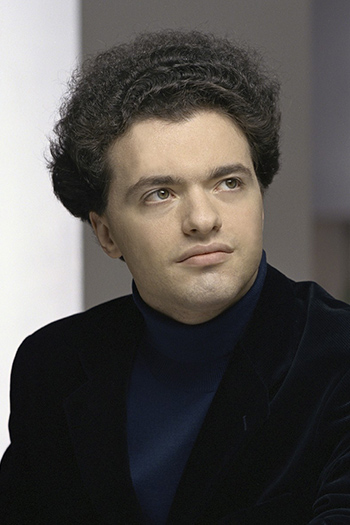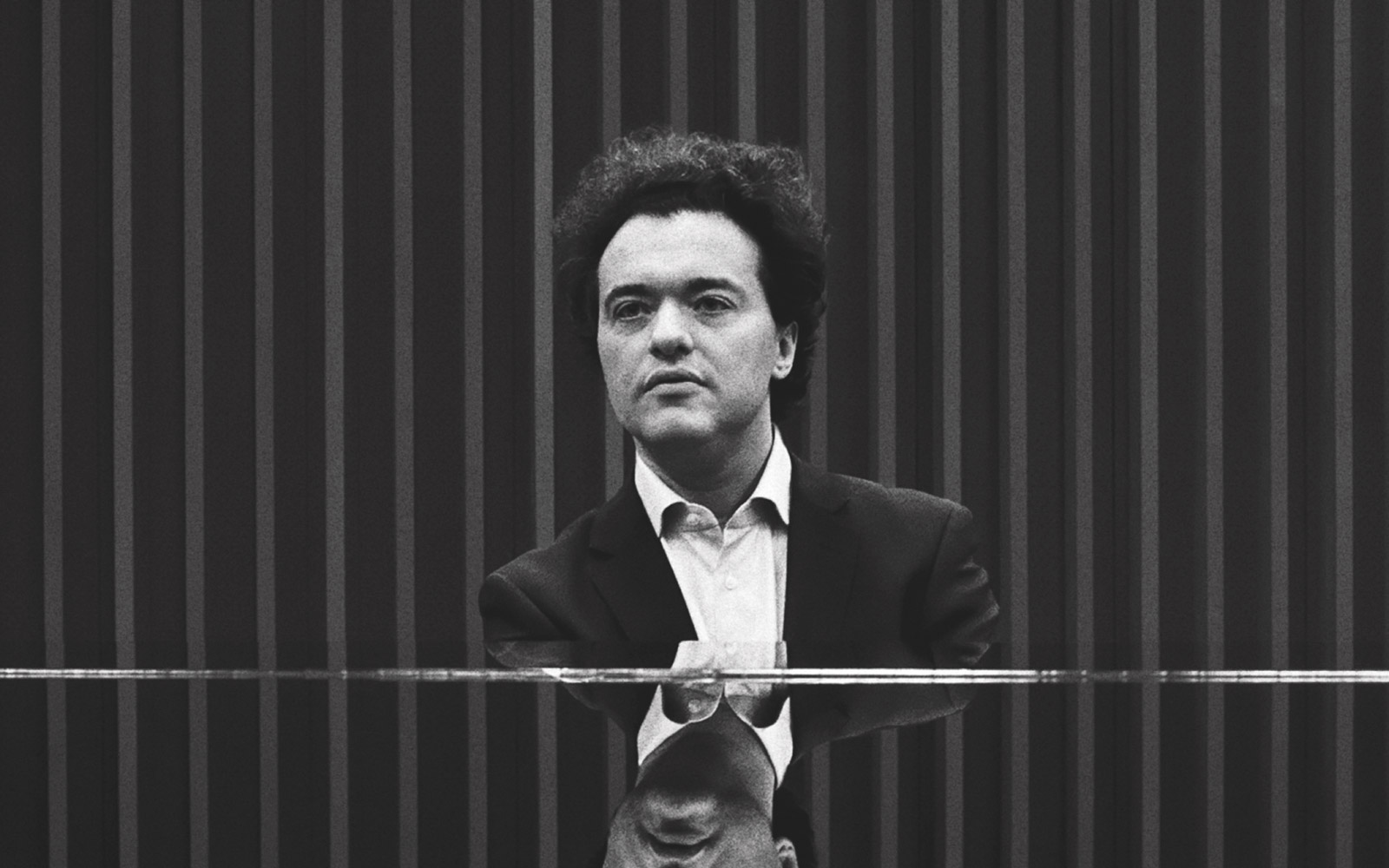Evgeny Kissin
Event Slider
Date
- / Cancelled / Sold out
Location
Grand Auditorium Calouste Gulbenkian Foundation- Piano
-

Evgeny Kissin
Piano
Evgeny Kissin was born in Moscow in October 1971 and began to play by ear and improvise on the piano at the age of two. At six years old, he entered a special school for gifted children, the Moscow Gnessin School of Music, where he was a student of Anna Pavlovna Kantor, who has remained his only teacher. He came to international attention in March 1984 when, at the age of twelve, he performed Chopin’s Piano Concertos 1 and 2 in the Great Hall of the Moscow Conservatory with the Moscow State Philharmonic under Dmitri Kitaenko.
Kissin’s first appearances outside Russia were in 1985 in Eastern Europe, followed a year later by his first tour of Japan. In 1987 he made his West European debut at the Berlin Festival. In 1988 he toured Europe with the Moscow Virtuosi and Vladimir Spivakov and also made his London debut with the London Symphony Orchestra under Valery Gergiev. In December of the same year he performed with Herbert von Karajan and the Berlin Philharmonic in a New Year’s concert which was broadcast internationally, with the performance repeated the following year at the Salzburg Easter Festival. Audio and video recordings of the New Year’s concert were made by Deutsche Grammophon. In 1990 Kissin made his first appearance at the BBC Promenade Concerts in London and that same year made his North American debut, performing both Chopin piano concertos with the New York Philharmonic conducted by Zubin Mehta. The following week he opened Carnegie Hall’s Centennial season with a spectacular debut recital, which was recorded live by BMG Classics.
Musical awards and tributes from around the world have been showered upon Kissin. In 1987 he received the Crystal Prize of the Osaka Symphony Hall for the best performance of the year 1986 (which was his first performance in Japan ). In 1991 he received the Musician of the Year Prize from the Chigiana Academy of Music in Siena, Italy . He was special guest at the 1992 Grammy Awards Ceremony, broadcast live to an audience estimated at over one billion, and became Musical America ’s youngest Instrumentalist of the Year in 1995. In 1997 he received the prestigious Triumph Award for his outstanding contribution to Russia’s culture, one of the highest cultural honors to be awarded in the Russian Republic, and again, the youngest-ever awardee. He was the first pianist to be invited to give a recital at the BBC Proms (1997), and, in the 2000 season, was the first concerto soloist ever to be invited to play in the Proms opening concert. In May 2001 Kissin was awarded an Honorary Doctorate of Music by the Manhattan School of Music. In December 2003 in Moscow, he received the Shostakovich Award, one of Russia ’s highest musical honors. In 2005, he was awarded an Honorary Membership of the Royal Academy of Music in London and awarded the Herbert von Karajan Music Prize. Evgeny Kissin is Honorary doctor of the Hong Kong University, the Hebrew University in Jerusalem and the Ben Gurion University in Beer Sheba.
Mr. Kissin’s recordings have also received numerous awards and accolades, having contributed significantly to the library of masterpieces recorded by the world’s greatest performers. Past awards have included the Edison Klassiek in The Netherlands, Grammy awards, and the Diapason d’Or and the Grand Prix of La Nouvelle Academie du Disque in France.
Johann Sebastian Bach
Chromatic Fantasia and Fugue in D minor, BWV 903
Wolfgang Amadeus Mozart
Piano Sonata Nº. 9 in D major, K. 311
Fryderyk Chopin
Scherzo No. 2, in B-flat minor, op. 31
— Intermission 20 min —
Sergei Rachmaninov
Lilacs op. 21 Nº. 5
Prelude in A minor, op. 32 Nº. 8
Prelude in G-flat major, op. 23 Nº. 10
Études-Tableaux, op. 39/1, 2, 4, 5, 9
Sergei Rachmaninov
Morceaux de Fantasie, op. 3
– n.º 3, Mélodie, in E major
– n.º 5, Sérénade, in E-flat minor
Considered one of the greatest pianists playing today, Evgeny Kissin has built a rare reputation, consolidated not just by his supreme technical ability but also by his great performative intensity and extremely refined musical sensibility. As if his art were a mere extension of his body, he told The New York Times that “playing music is the way I express myself best”. Rapidly imposing himself on the international circuit, at 19 he was excitedly welcomed at the Berlin Philharmomic and New York Philharmonic. Now, at 50, maturity has refined his well-known virtues without them losing any of their glow.
Sponsor Gulbenkian Music
The Calouste Gulbenkian Foundation reserves the right to collect and keep records of images, sounds and voice for the diffusion and preservation of the memory of its cultural and artistic activity. For further information, please contact us through the Information Request form.
